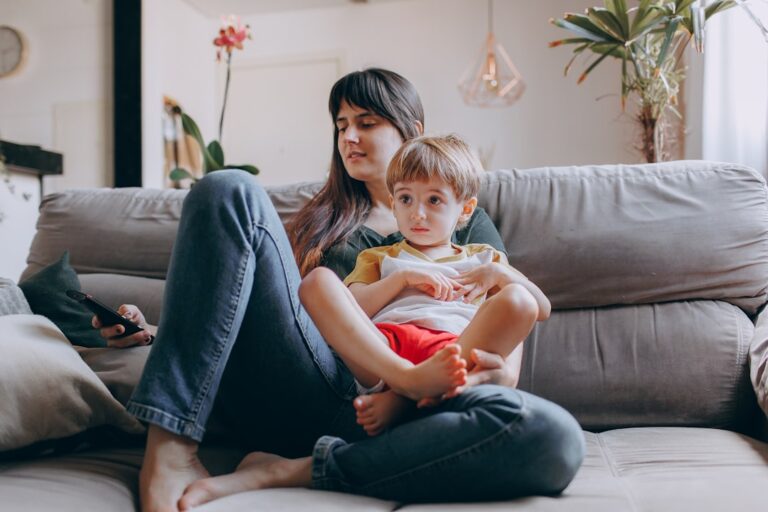Every parent wants to see their child grow into a dependable, capable adult. But the journey starts much earlier than we sometimes realize. Teaching kids responsibility isn’t just about chores—it means nurturing habits, mindsets, and skills that will serve them for a lifetime. If you’re searching for effective, realistic ways to raise responsible children, you’re in the right place.
Why Is Responsibility an Essential Life Skill?
Responsibility empowers kids to take ownership of their actions, manage obligations, and become trustworthy members of their family and society. Building responsibility prepares children for:
- Academic success: Meeting deadlines, completing homework, and staying organized.
- Relationships: Honoring commitments and being reliable friends or siblings.
- Self-reliance: Taking care of themselves and making thoughtful choices.
- Future employability: Adapting to expectations in school, jobs, or volunteer positions.
All these abilities strengthen self-esteem and help children thrive as they grow.
When Should You Start Teaching Responsibility?
Responsibility isn’t tied to a single age. It grows from small seeds planted in early childhood and continues evolving through the teen years. Here’s a general overview of age-appropriate responsibility:
- Preschoolers: Simple tasks (putting toys away, feeding a pet with help).
- Early Elementary: Small chores, following routines, remembering backpacks.
- Older Children: Managing homework, caring for belongings, helping siblings, sticking to commitments.
- Teens: Balancing school, activities, part-time jobs, and even supporting family life more independently.
How Parents Can Foster Responsibility: Your Step-by-Step Guide
Building responsibility isn’t about one big conversation or a chart of chores. It’s an everyday process. Here’s how you can support your child at every step.
1. Set the Right Example
Children watch what you do more than they listen to what you say. If you follow through on promises, own up to mistakes, and handle daily duties with a positive attitude, your child will be more likely to mirror those behaviors. When you say you’ll pick them up at a certain time, do it. If you forget something, model taking responsibility by apologizing and making amends.
2. Start Small and Build Up
Big jobs can be overwhelming, especially for young children. Begin with simple, age-appropriate responsibilities that allow your child to see immediate results. For example:
- Putting dirty laundry in a basket
- Feeding the family pet
- Setting the dinner table
- Watering houseplants
As these tasks become habits, gradually increase the level of responsibility so your child feels trusted and capable.
3. Teach—Don’t Expect Perfection
No one is born knowing how to be responsible. Break down tasks into smaller steps. For example, if your child needs to pack a backpack for school, make a checklist with them. Practice together. Offer gentle reminders rather than doing things for them. Remember, everyone learns by making mistakes.
4. Use Routines and Structure
Children thrive on predictability. Routines make responsible behavior second nature. Consider:
- Morning and bedtime checklists
- Visual schedules posted at home
- Regular task charts for chores
Let your child have a say in creating routines. This gives a sense of ownership and makes them more likely to stick with it.
5. Praise Effort, Not Just Results
Notice when your child takes initiative or persists at a responsibility. Be specific: “I like how you remembered to put your shoes away without being asked.” This kind of praise encourages them to keep trying, even if the outcome isn’t perfect.
6. Encourage Natural Consequences
Letting children experience the natural results of their actions is a powerful teacher. If your child forgets their lunch, resist the urge to rush it to school every time. Feeling a little hungry that day will help them remember next time. Use empathy, not criticism: “I know it’s hard to go without lunch. What could help you remember tomorrow?”
7. Allow for Choice and Voice
Responsibility blossoms when kids feel they have control. Whenever possible, let them choose which chores to do or how to tackle a problem. Discuss family rules together—such as expectations for screen time or clean bedrooms—so your child feels heard and invested.
8. Be Consistent with Expectations
Follow through is crucial. If you say your child must finish homework before screen time, stick to it. Consistency helps them understand that responsibilities are real and not negotiable. Avoid rescuing, nagging, or changing expectations out of convenience.
Responsibility Beyond Chores: Growing Emotional and Social Maturity
While chores are a clear way to build responsible habits, true responsibility goes beyond tasks—it means considering others, regulating emotions, and being accountable in relationships. Here are some ways to help your child expand their understanding:
- Model apologizing when you lose your temper.
- Encourage empathy by discussing how others might feel in different situations.
- Prompt them to solve problems with siblings or friends rather than jumping in every time.
- Let them lead family projects, such as planning a meal or organizing an outing.
Common Parent Questions About Teaching Responsibility
Q: My child resists every chore. What should I do?
Start small and give choices. You might ask, “Would you rather set the table tonight or help take out recycling tomorrow?” Pair chores with one-on-one time (“After we pick up toys, let’s read together!”) to make the process more rewarding.
Q: Is it okay to give rewards for completed responsibilities?
Recognition is helpful—just be careful not to make rewards the only motivation. Occasional incentives (like a family movie night) can be motivating, but praise, trust, and pride in their role should stay at the center.
Q: What if my child keeps forgetting their responsibilities?
Kids need reminders, especially when a task is new. Use visual aids, checklists, and gentle prompts, but avoid nagging. If forgetfulness feels deliberate or chronic, talk together about what’s getting in the way. Sometimes simplifying routines or breaking tasks down can make a big difference.
Sample List: Chores and Responsibilities by Age
Wondering what your child can handle? Every child is different, but here are some age-appropriate ideas:
Preschool (Ages 3–5)
- Put toys and books away
- Help feed the family pet
- Water plants
- Pair socks after laundry
Early Elementary (Ages 6–8)
- Make bed in the morning
- Put away clean laundry
- Clear dishes from the table
- Help pack school bag and snack
- Sweep small areas
Older Elementary (Ages 9–12)
- Help prepare simple meals
- Take out trash
- Wash dishes/load dishwasher
- Walk the dog (with supervision if needed)
- Independently manage homework and schedule
Teens
- Do laundry start-to-finish
- Mow the lawn or shovel snow
- Babysit younger siblings for short periods
- Handle personal appointments (scheduling, following up)
- Take on leadership roles in family or community
How to Handle Mistakes: Using Slip-Ups as Teaching Moments
Even responsible kids (and grown-ups!) mess up from time to time. Instead of scolding or rescuing, use mistakes as learning opportunities:
- Acknowledge the mistake: “Looks like you forgot to walk the dog tonight.”
- Troubleshoot together: “What happened? Is there a way we can make it easier to remember tomorrow?”
- Encourage accountability: “How can you make it right for the dog?”
- Move forward: Offer support and let your child try again.
When children are trusted (not shamed) to make things right, their sense of responsibility and self-worth grows.
What If My Child Struggles with Responsibility?
Some kids need more support, extra repetition, or creative strategies. Consider:
- Collaborative problem-solving: Involve your child in brainstorming solutions, rather than imposing consequences alone.
- Visual cues: Use sticky notes, pictures, or apps to support memory.
- Chunking tasks: Break larger jobs (like cleaning a room) into brief, achievable steps.
- Professional support: If your child’s challenges seem extreme or are coupled with issues like inattention or anxiety, a pediatrician or counselor can help.
Responsibility and Parental Patience: Taking the Long View
Building responsibility is a marathon, not a sprint. Young children may forget, resist, or need constant repetition. Older kids might challenge boundaries. The most important thing: stay steady, patient, and positive. Celebrate effort, talk about missteps calmly, and keep moving forward together.
Examples of Responsibility in Everyday Life
Beyond housework, look for opportunities to help your child practice responsibility:
- Taking care of a plant or pet
- Carrying their own backpack or lunch to school
- Saving allowance for a special goal
- Notifying you if they’re going to be late
- Sticking to agreements about screen time, curfews, or commitments
- Calling a friend to apologize after an argument
Getting the Whole Family Involved
Family responsibility is stronger when shared. Try these ideas:
- Family meetings to discuss goals, assign chores, or review the week.
- “Help out” hours where everyone tidies up together (play music and set a timer!)
- Appreciation boards: Write notes praising each other’s contributions.
- Rotation: Let every child take a turn leading a family activity or meal.
Responsibility and Self-Esteem: How They’re Linked
When children master new skills and see that their actions matter, they feel capable and valued. This sense of competence strengthens self-esteem and motivates them to take on new challenges. Even small tasks, like remembering library books or keeping a room tidy, help build the internal “I can do this!” voice that carries them through life’s hurdles.
Takeaway: Raising Responsible Kids Is a Journey
Every effort you make today plants a seed for tomorrow. Teaching responsibility takes time, repetition, and patience—but you’re building the foundation for a resilient, self-assured adult. Remember, your support, belief, and example matter more than any chart or incentive. Start small, keep expectations clear and fair, and celebrate every bit of growth.
With ongoing encouragement, guidance, and plenty of practice, your child will develop the skills and confidence to meet life’s challenges head-on. It’s one of the greatest gifts you can give as a parent—and the results last a lifetime.




